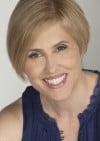book 23 of 24 books in 28 days: memoir: a history
I like Ben Yagoda’s Memoir: A History for what it accomplishes–an ambitious cataloging of memoir from the beginning of the genre, with offshoots and subcategories, and examinations of the difficulties of navigating memory and truth. For my purposes, which lately have been to teach myself about memoir and place my own writing within it, it works very well.
The New York Times Book Review wishes it went farther. Jonathan Yardley in The Washington Post likes Yagoda’s book more than he likes the genre anyway.
Yagoda writes, “My main approach in seeking the answers to [questions of truth and memory] is not thematic, theoretical, generic, psychological, moral, or aesthetic, but historical.”
He zigzags from the current fascination with memoir, to its origins–“chronicles and confessions”–and back to the present, with a break for “truth, memory, and autobiography,” before going back to the Victorians and then back again to memoir in the present and then back again to the mid-20th century. To me the back-and-forth structure makes the point that memoir has always been popular, and to think that it’s only just now coming into huge popularity (and alternately reviled) is incorrect.
In his final chapter he addresses at length the James Frey fraudulent memoir. After reviewing the press around the release of A Million Little Pieces, Yagoda rightly asks, “Is it any surprise that such a self-absorbed poseur should, in his book, have pumped up his life to make it seem more violent, painful, melodramatic and extreme than it was?”
He concludes his book with this same commonsensical approach, by
reproduc[ing] the wisest statement about [the standard of truth in memoir] that I’ve ever come across. It was written in 1960 by a New York Times reporter named Raymond Walters, Jr. He observed:
The reader who picks up an autobiography merely for several hours’ entertainment is not likely to be troubled about its truthfulness as long as it tells a good yarn. But what of the reader who hopes to learn something about the ways of the world and how one individual responded to them? He may follow a method discerning critics have used for centuries: when you start reading an autobiography, think of it as a person to whom you have just been introduced. Size up as best you can the personality of the man or woman who is talking and take it constantly into consideration as you judge the truthfulness of what he has to say.
I talked about the truthfulness of Running With Scissors (and only after a commenter raised it).
Food for thought, from the fiction side of things:
I said, “Stuart, I read fiction, my job is to be gullible. I believe anything anyone tells me except for people who write memoirs.”
–John Dufresne, “I Will Eat a Piece of the Roof and You can Eat the Window”
So, how do you tell whether a memoir is true?





Comments are closed